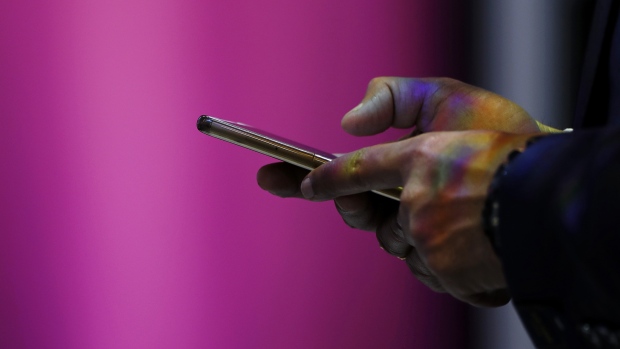Apr 18, 2019
‘We’re burning people out’: Why Ma’s extreme ‘996’ overtime isn’t necessary to succeed
, BNN Bloomberg

Would you work 12 hours a day for six days a week without extra compensation?
Alibaba Group Holding Ltd. founder and CEO Jack Ma made headlines earlier this week for endorsing that type of overtime schedule, known as “996.” The number refers to working 9 a.m. to 9 p.m., six days per week and is said to be common among China’s tech industry and startups.
Overtime isn't uncommon – albeit maybe not as extreme – in Canada, especially in the burgeoning tech sector, as workers become increasingly plugged in and accessible through their devices. But some experts say working excessive hours doesn't necessarily translate to success.
“Work should not be over the required time as rest is one of the factors that enables employees or entrepreneurs to sustain their productivity,” Mary Han, associate professor of entrepreneurship and strategy at Ryerson University’s Ted Rogers School of Business Management, said in an email interview.
Han pointed out that the pressure to work overtime in China and other parts of Asia is nothing new, and that China's large population is part of what fosters competitiveness in its workforce.
"If you are in these countries and want to succeed, guess what? You must compete," she said. Han added China's retirement age is relatively low – 60 for men and 50 for women – partly because the intense work schedule isn't sustainable.
Michael Katchen, founder and chief executive of online investment management company Wealthsimple Inc., says he emphasizes “working smart” over “working hard” with his employees.
“That means prioritizing the things that are most important, and eliminating unnecessary processes and activities that take time but don't add value,” he told BNN Bloomberg in an email. “We tell our team that if you're in a meeting and it's not useful for you to be there, just leave.”
Thirty-one-year-old Katchen founded the tech company in 2014 and has led it to expand internationally in a short period of time.
"There's no question that starting a business from scratch takes a lot of work,” he said. “And often with limited resources, that can certainly mean putting in a lot hours, especially in the early days.”
- Jack Ma again endorses extreme '996' overtime as furor rages on
- How the 'right to disconnect' could affect Canadian businesses' productivity
- Burned-out millennials need careers, not just jobs
READ MORE: WORKING OVERTIME
Bill Howatt, founder of Howatt HR Consulting and the Conference Board of Canada’s chief of research for workforce productivity, said he would never recommend a 996 work schedule. He added that he doesn't allow his own employees to work evenings or weekends.
“We’re burning people out, we’re doing it at a rate that there’s a lot of mental health issues in our country that are continuing to evolve,” he told BNN Bloomberg in a phone interview.
“The reality is everyone who works 996 is never going to become a billionaire,” Howatt added. “It’s going to be kind of like the NHL: Lots of kids have big dreams and play hockey, but only a very, very small percentage of the population ever makes the NHL."
In spite of concerns around an intensifying work culture, Canada has some of the most employee-friendly legal protections in the world, said Toronto-based employment lawyer Sunira Chaudhri.
For example, under Ontario's Employment Standards Act, employees are entitled to overtime pay if they work more than 44 hours per week, with the exception of management or supervisory roles or those in professional fields like healthcare or law.
The federal Liberals have considered legislation to further protect workers' free time. In November, Ottawa said it was examining a “right-to-disconnect” law after France in 2017 gave employees the legal right to avoid work emails outside of working hours.
While Chaudhri, who is a partner at Levitt LLP, doesn't believe a 996 work schedule is healthy or sustainable for any industry, she says that Ma’s comments are a huge compliment to Alibaba’s employees.
“I think Jack Ma’s comments were smart, because ultimately from a PR perspective, what he is signalling to the world and about his company is that he has the hardest workers in the world," she said. “So ultimately, is Alibaba looking to turn the other way when it comes to employee rights? I don’t think so. I think what [Ma] is saying is: ‘We look for the best, we want the best, we get the best.’”
But as industries like tech continue to flourish in Canada, it remains debatable whether the country’s work culture is on its way to mirroring that of China’s.
“We’ve been on that path for some time,” Chaudhri said.
“The fact is, though, that industries like tech continue to hold up as a badge of honour the amount of hours that go into being creative in those industries,” she added. “And until that culture within the industry changes, the issue of overtime, the issue of stress [and] anxiety in the workplace is going to continue to creep into that industry and potentially give it a bad name."
Katchen, however, said he doesn’t think a 996 schedule will become commonplace in Canada.
“I don't see working 12 hours per day, six days a week becoming the norm, and it's just not necessary in every type of business,” he said. “What I do see happening is more flexibility around how, when and where people work to be most productive.”






